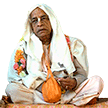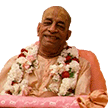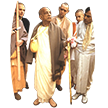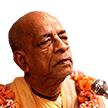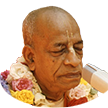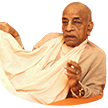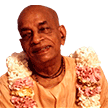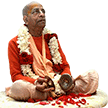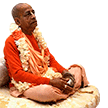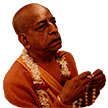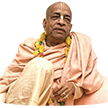Yamaraja - a glorious personality: Difference between revisions
(Created page with "Category: Glorious Personalities '''Names for Yamaraja''' :Yamarāja | Yavaneśvara | Yavana-rāja | Yama | Dharmaraja | Yavanesvara | Dharma ---- File:Krsna_and_Balaram...") |
No edit summary |
||
| Line 1: | Line 1: | ||
[[Category: Glorious Personalities]] | [[Category:Glorious Personalities]] | ||
[[Category:Glorious Personalities from Srimad Bhagavatam]] | |||
: | [[Category:Glorious Personalities - Pages Under Construction]] | ||
---- | <!---------------- BEGIN PICTURE ----------------> | ||
[[File:Krsna_and_Balarama_summon_Yamaraja.jpg| | [[File:Krsna_and_Balarama_summon_Yamaraja.jpg|408px|thumb|alt=Krsna and Balarama summon Yamarāja|link=|<div class="center">'''[[Vanisource:KB 45#Yamaraja|Krsna and Balarama summon Yamaraja]]'''</div>]] | ||
<!----------------- END PICTURE -----------------> | |||
<!---------------- BEGIN FACTS ABOUT ----------------> | |||
'''Facts about [[Vaniquotes:Category:Yamaraja|Yamarāja]] - [[Vaniquotes:Category:Names of the Twelve Mahajanas|one of the twelve Mahajanas]], [[Vaniquotes:Category:Names of Demigods|a demigod]] and [[Vaniquotes:Category:Names of Saintly Kings|a saintly king]]''' | |||
''' | *Also known as Yavaneśvara - Yavana-rāja - Yama - Dharmarāja - Yavanesvara - Dharma | ||
*Great-great-grandson of '''[[Vaniquotes:Category:Brahma|Brahmā]]''' | |||
*Great-grandson of '''[[Vaniquotes:Category:Marici|Marīci]]''' | |||
*Grandson of '''[[Vaniquotes:Category:Kasyapa Muni|Kaśyapa Muni]]''' and '''[[Vaniquotes:Category:Aditi|Aditi]]''' | |||
*Nephew of '''[[Vaniquotes:Category:Upendra|Vamanadeva]]''' | |||
*Son of '''[[Vaniquotes:Category:Vivasvan|Vivasvān]]''' and '''[[Vaniquotes:Category:Samjna (wife of Vivasvan)|Saṁjñā]]''' | |||
*Brother of '''[[Vaniquotes:Category:Yamuna River|Yāmi]]''', '''[[Vaniquotes:Category:Vaivasvata Manu|Vaivasvata Manu]]''' and the '''[[Vaniquotes:Category:Asvini-kumaras|Aśvinī-kumāras]]''' | |||
*Husband of thirteen daughters of '''[[Vaniquotes:Category:Daksa|Dakṣa (first birth)]]''' and ten daughters of '''[[Vaniquotes:Category:Daksa|Dakṣa (re-birth)]]''' | |||
*Father of '''[[Vaniquotes:Category:Nara-Narayana|Śri Nara-Nārāyaṇa]]''', the '''[[Vaniquotes:Category:Vasus|Eight Vasus]]''' (including '''[[Vaniquotes:Category:Agni|Agni]]'''), '''[[Vaniquotes:Category:Bhadrasrava|Bhadraśravā]]''', '''[[Vaniquotes:Category:Yudhisthira|Yudhiṣṭhira]]''' by '''[[Vaniquotes:Category:Kunti|Kuntī]]''', Jayanta (expansion of Vasudeva) and many others | |||
*Grandfather of '''[[Vaniquotes:Category:Visvakarma|Viśvakarmā]]''', '''[[Vaniquotes:Category:Sisumara|Śiśumāra]]''' and '''[[Vaniquotes:Category:Svarocisa Manu|Svārociṣa Manu]]''' | |||
*Great-grandfather of '''[[Vaniquotes:Category:Caksusa Manu|Cākṣuṣa Manu]]''' | |||
*Residence: A heavenly city called '''[[Vanisource:SB 10.89.42|Saṁyamanī]]''' on '''[[Vaniquotes:Category:Yamaloka|Yamaloka]]''' | |||
<!---------------- END FACTS ABOUT ----------------> | |||
<div style="clear:both;"></div> | |||
<!---------------- BEGIN MINDMAP ----------------> | |||
[[File:Yamaraja-Tree-1600.jpg|alt=Family tree of Yamarāja|link=]] | |||
'''Family Tree Legend: h = husband, w = wife, s = son, d = daughter''' | |||
<!----------------- END MINDMAP -----------------> | |||
---- | |||
<!---------------- BEGIN SHORT SUMMARY TEXT ----------------> | |||
'''[[Vaniquotes:Category:Yamaraja|Yamarāja]]''' is the demigod of death, who passes judgment on non-devotees at the time of death. | |||
<!----------------- END SHORT SUMMARY TEXT -----------------> | |||
{{Personalitiesnav}} | |||
<!---------------- BEGIN STANDARD HEADING ----------------> | |||
Srila Prabhupada's books, lectures, conversations and letters offer reveal the qualities of this glorious personality as seen in the Vaniquotes '''[[Vaniquotes:Category:Yamaraja|Yamarāja]]''' category. An introduction to Yamarāja from Srila Prabhupada's books is given below in the following 11 quotes. | |||
<!----------------- END STANDARD HEADING -----------------> | |||
== Quotes from Srila Prabhupada's Books == | |||
<!---------------- BEGIN QUOTE BOXES ----------------> | |||
{{VaniQuotebox|Yamaraja, the great controller of life after death, decides the living entities' destinies in their next lives|Yamarāja, the great controller of life after death, decides the living entities' destinies in their next lives. He is surely among the most confidential representatives of the Lord. Such confidential posts are offered to great devotees of the Lord who are as good as His eternal associates in the spiritual sky. '''(Śrīmad-Bhāgavatam 3.5.21)'''}} | |||
{{VaniQuotebox|After his (an envious person's) death, he is taken to hell by Yamaraja, those living entities who were hurt by him appear as animals called rurus to inflict very severe pain upon him|In this life, an envious person commits violent acts against many living entities. Therefore after his death, when he is taken to hell by Yamarāja, those living entities who were hurt by him appear as animals called rurus to inflict very severe pain upon him. Learned scholars call this hell Raurava. '''(Śrīmad-Bhāgavatam 5.26.11)'''}} | |||
{{VaniQuotebox|Yama is situated in a planet near this earthly planet. After death those who are very sinful are taken there, and Yama arranges different kinds of punishments for them|There are many living entities who give punishment to the miscreants, and among them Yama is the chief. Yama is situated in a planet near this earthly planet. After death those who are very sinful are taken there, and Yama arranges different kinds of punishments for them. '''(Bhagavad-gītā 10.29)'''}} | |||
{{VaniQuotebox|Yamaraja wanted to preach the glories of the Lord, and therefore by the will of the Lord he was cursed by Manduka Muni to come into the world in the incarnation of Vidura and work very hard as a great devotee|There are more wrongdoers than righteous men. Therefore Yamarāja has to do more work than other demigods who are also authorized agents of the Supreme Lord. But he wanted to preach the glories of the Lord, and therefore by the will of the Lord he was cursed by Maṇḍūka Muni to come into the world in the incarnation of Vidura and work very hard as a great devotee. '''(Śrīmad-Bhāgavatam 1.13.15)'''}} | |||
{{VaniQuotebox|Yamaraja is not a fictitious or mythological character; he has his own abode, Pitrloka, of which he is king. Agnostics may not believe in hell, but Sukadeva Gosvami affirms the existence of the Naraka planets|Yamarāja is not a fictitious or mythological character; he has his own abode, Pitṛloka, of which he is king. Agnostics may not believe in hell, but Śukadeva Gosvāmī affirms the existence of the Naraka planets, which lie between the Garbhodaka Ocean and Pātālaloka. Yamarāja is appointed by the Supreme Personality of Godhead to see that the human beings do not violate His rules and regulations. '''(Śrīmad-Bhāgavatam 5.26.6)'''}} | |||
- | |||
{{VaniQuotebox|Yamaraja | {{VaniQuotebox|Yamaraja is a great devotee of the Lord, and he likes to be invited to kirtanas and sacrifices by the pure devotees, who are constantly engaged in the devotional service of the Lord|The only hope of suspending the cruel slaughtering process of Yamarāja is to call him to hear and chant the holy name of the Lord. Yamarāja is a great devotee of the Lord, and he likes to be invited to kīrtanas and sacrifices by the pure devotees, who are constantly engaged in the devotional service of the Lord. '''(Śrīmad-Bhāgavatam 1.16.7)'''}} | ||
{{VaniQuotebox| | {{VaniQuotebox|Intelligent persons take to the devotional service of the Lord. When they chant the holy name of the Lord without offenses, they are no longer subject to my (Yamaraja) rulings|Intelligent persons, however, take to the devotional service of the Lord. When they chant the holy name of the Lord without offenses, they are no longer subject to my rulings. If by chance they commit some sinful act, they are protected by the holy name of the Lord because that is where their interest lies. The four weapons of the Lord, especially the club and the Sudarśana cakra, always protect the devotees. '''(Śrīmad-Bhāgavatam 6.3 Summary)'''}} | ||
{{VaniQuotebox| | {{VaniQuotebox|A person who in this life is proud of his eminent position, and who heedlessly sacrifices animals simply for material prestige, is put into the hell called Visasana after death. There the assistants of Yamaraja kill him after giving him unlimited pain|A person who in this life is proud of his eminent position, and who heedlessly sacrifices animals simply for material prestige, is put into the hell called Visasana after death. There the assistants of Yamaraja kill him after giving him unlimited pain. '''(Śrīmad-Bhāgavatam 5.26.25)'''}} | ||
{{VaniQuotebox|Yamaraja wanted to | {{VaniQuotebox|The Yamadutas were certain that Ajamila was a most sinful man, but although Yamaraja wanted to punish him, the Visnudutas excused him. This was a puzzling situation that the Yamadutas wanted Yamaraja to clarify|The Yamadūtas could not imagine that two judges would give two different verdicts in the same case, and therefore they wanted to know who the central judge is. The Yamadūtas were certain that Ajāmila was a most sinful man, but although Yamarāja wanted to punish him, the Viṣṇudūtas excused him. This was a puzzling situation that the Yamadūtas wanted Yamarāja to clarify. '''(Śrīmad-Bhāgavatam 6.3.6)'''}} | ||
{{VaniQuotebox|Yamaraja | {{VaniQuotebox|The Visnudutas were also surprised that the Yamadutas, although claiming to be servants of Yamaraja, the supreme judge of religious principles, were unaware of the principles of religious action|The Yamadūtas were surprised to see that the Viṣṇudūtas, although polite, were hindering the rule of Yamarāja. Similarly, the Viṣṇudūtas were also surprised that the Yamadūtas, although claiming to be servants of Yamarāja, the supreme judge of religious principles, were unaware of the principles of religious action. Thus the Viṣṇudūtas smiled, thinking, "What is this nonsense they are speaking? If they are actually servants of Yamarāja they should know that Ajāmila is not a suitable candidate for them to carry off. '''(Śrīmad-Bhāgavatam 6.1.37)'''}} | ||
{{VaniQuotebox|Yamaraja | {{VaniQuotebox|In the Sixth Canto of SB, in connection with Ajamila's deliverance, Yamaraja says, dharmam tu saksad bhagavat-pranitam: real religion is that which is given by the Supreme Personality of Godhead, just as real law is that which is given by the government|In the Sixth Canto of Śrīmad-Bhāgavatam, in connection with Ajāmila's deliverance, Yamarāja says, dharmaṁ tu sākṣād bhagavat-praṇītam: (SB 6.3.19) real religion is that which is given by the Supreme Personality of Godhead, just as real law is that which is given by the government. No one can manufacture actual law at home, nor can one manufacture actual religion. Elsewhere it is said, sa vai puṁsāṁ paro dharmo yato bhaktir adhokṣaje: (SB 1.2.6) the real religious system is that which leads one to become a devotee of the Supreme Lord. '''(Śrīmad-Bhāgavata 7.15.13)'''}} | ||
<!---------------- END QUOTE BOXES ----------------> | |||
'''Yamarāja - [[Vaniquotes:Category:Yamaraja|explore more within this category]]'''. | |||
{{GloriousPersonalitiesTotal}} | |||
__NOTOC__ | __NOTOC__ | ||
__NOEDITSECTION__ | __NOEDITSECTION__ | ||
Latest revision as of 04:01, 12 February 2017

Facts about Yamarāja - one of the twelve Mahajanas, a demigod and a saintly king
- Also known as Yavaneśvara - Yavana-rāja - Yama - Dharmarāja - Yavanesvara - Dharma
- Great-great-grandson of Brahmā
- Great-grandson of Marīci
- Grandson of Kaśyapa Muni and Aditi
- Nephew of Vamanadeva
- Son of Vivasvān and Saṁjñā
- Brother of Yāmi, Vaivasvata Manu and the Aśvinī-kumāras
- Husband of thirteen daughters of Dakṣa (first birth) and ten daughters of Dakṣa (re-birth)
- Father of Śri Nara-Nārāyaṇa, the Eight Vasus (including Agni), Bhadraśravā, Yudhiṣṭhira by Kuntī, Jayanta (expansion of Vasudeva) and many others
- Grandfather of Viśvakarmā, Śiśumāra and Svārociṣa Manu
- Great-grandfather of Cākṣuṣa Manu
- Residence: A heavenly city called Saṁyamanī on Yamaloka
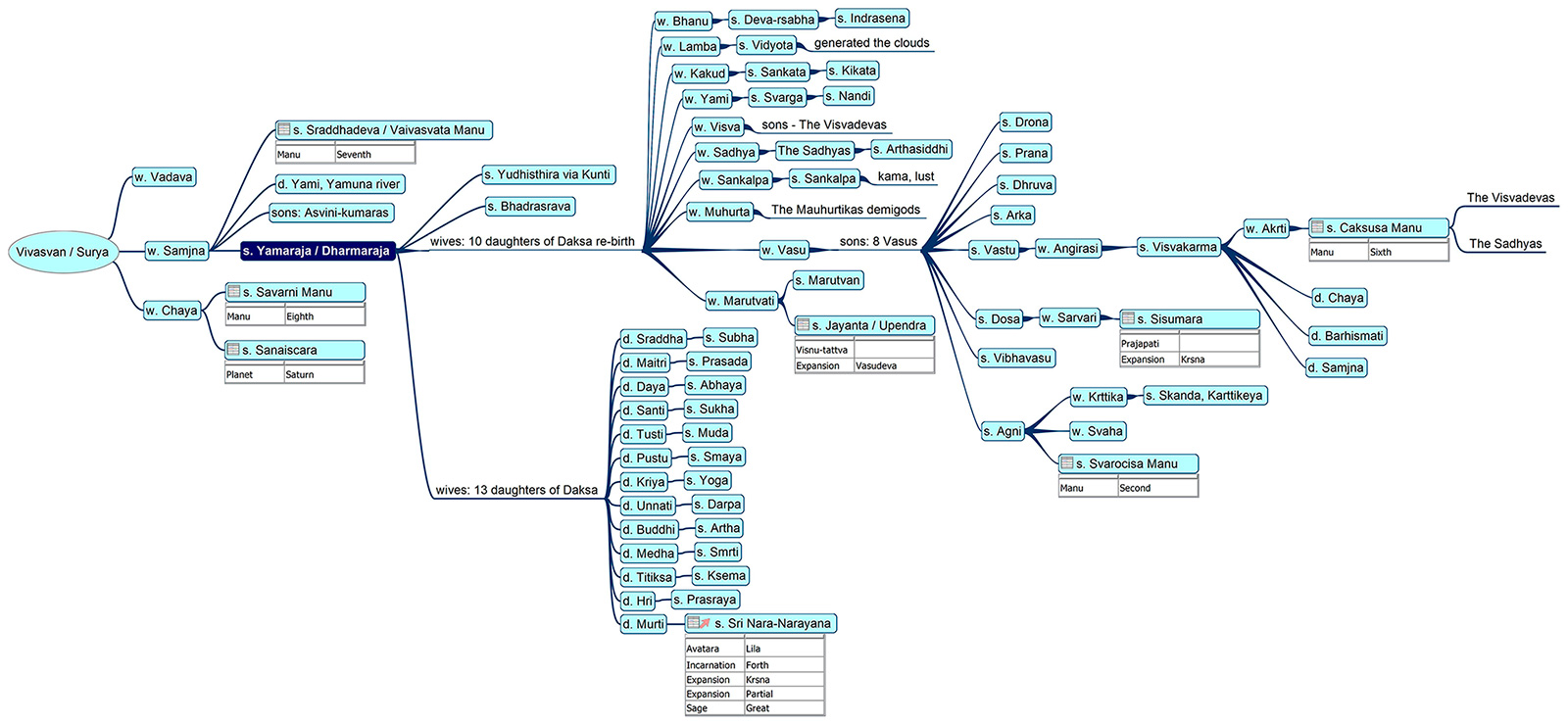
Family Tree Legend: h = husband, w = wife, s = son, d = daughter
Yamarāja is the demigod of death, who passes judgment on non-devotees at the time of death.
Srila Prabhupada's books, lectures, conversations and letters offer reveal the qualities of this glorious personality as seen in the Vaniquotes Yamarāja category. An introduction to Yamarāja from Srila Prabhupada's books is given below in the following 11 quotes.
Quotes from Srila Prabhupada's Books
Yamarāja - explore more within this category.
Vanipedia has now over 215 introductory articles compiled from Srila Prabhupada's teachings under the series titled Glorious Personalities. All these articles can be seen in the Table of Content on the right side of this article and also here in this Umbrella Category. Browse through them to relish the breadth and depth of Srila Prabhupada's teachings - There is an attractive personality for everyone.
